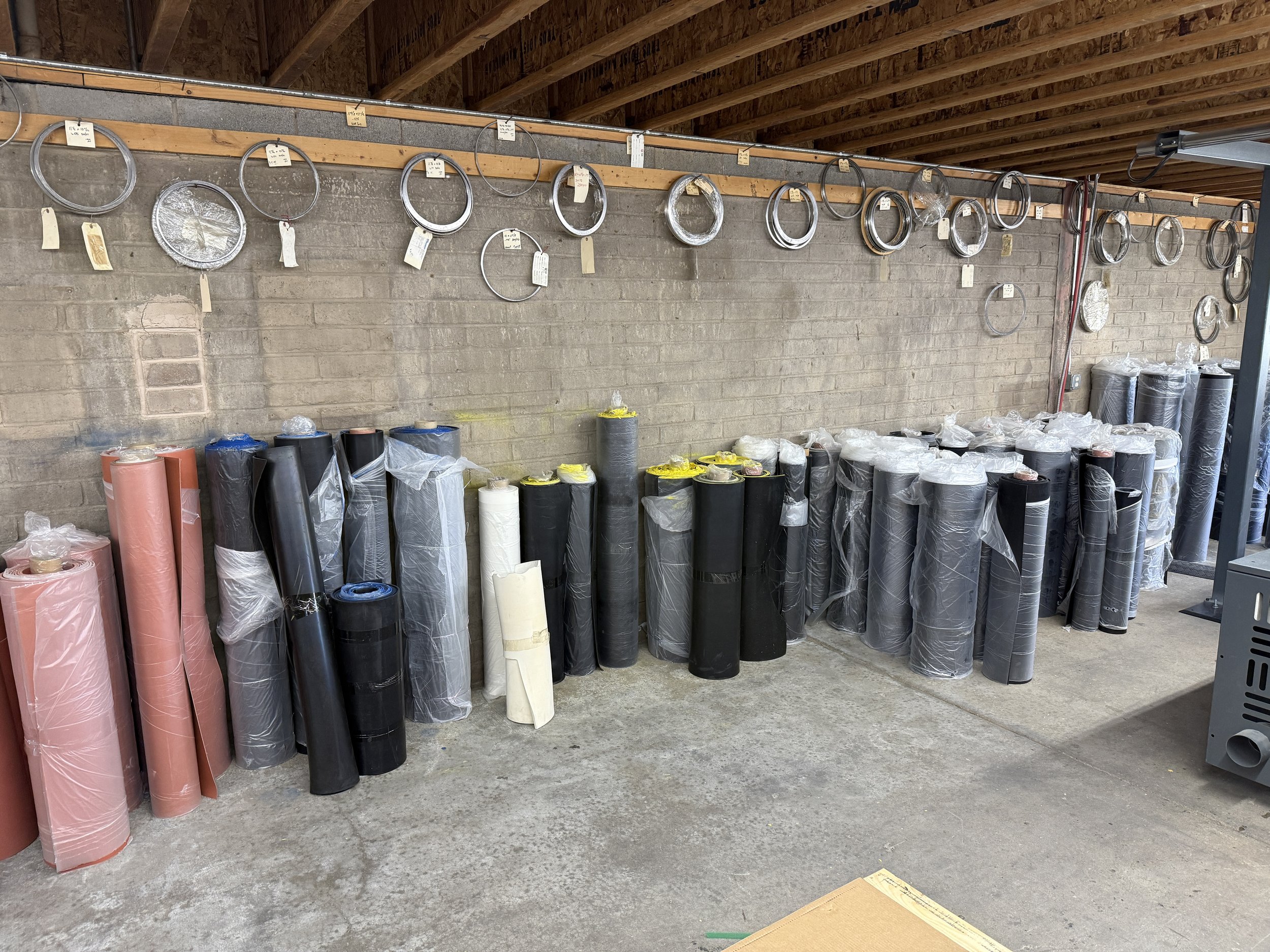Sheet Rubber
INDUSTRIAL SHEET RUBBER
Industrial sheet rubber refers to rubber materials that are manufactured in sheet form and used in a wide range of industrial applications for sealing, cushioning, insulating, and protecting against various environmental factors. These sheets are made from synthetic or natural rubber compounds and can be customized in terms of thickness, hardness, and specific properties to suit different industrial requirements. Here are key points about industrial sheet rubber:
Material Composition: Industrial sheet rubber can be made from different types of rubber, including natural rubber (NR), synthetic rubbers such as styrene-butadiene rubber (SBR), neoprene (CR), nitrile rubber (NBR), EPDM (ethylene propylene diene monomer), silicone rubber, and fluorocarbon rubber (Viton®). Each type of rubber offers specific properties such as chemical resistance, temperature tolerance, flexibility, and durability.
Types of Industrial Sheet Rubber:
General-Purpose Rubber Sheets: These sheets are versatile and used in a wide range of applications for sealing, gasketing, cushioning, and vibration damping.
Specialty Rubber Sheets: These include sheets with specific properties like high temperature resistance, oil resistance, flame retardancy, anti-static properties, and food-grade compliance for use in specialized industrial applications.
Properties: Industrial sheet rubber can exhibit various properties depending on the type of rubber and additives used in its formulation. Common properties include:
Abrasion Resistance: Ability to withstand wear and tear from friction and mechanical stress.
Chemical Resistance: Resistance to oils, fuels, acids, alkalis, and other chemicals based on the rubber compound.
Temperature Resistance: Capability to withstand a range of temperatures from extreme cold to high heat.
Weather Resistance: Resistance to ozone, UV exposure, and outdoor elements.
Electrical Insulation: Ability to insulate against electrical conductivity.
Compression Set: Ability to recover after compression, important for sealing applications.
Tensile Strength and Elongation: Mechanical properties related to stretching and deformation under stress.
Applications: Industrial sheet rubber is used in various industries and applications, including:
Sealing gaskets for machinery, equipment, and pipelines.
Vibration and sound dampening pads and mounts.
Conveyor belts and belting components.
Electrical insulation and protective covers.
Flooring and matting for industrial, commercial, and recreational facilities.
Automotive and marine applications for seals, gaskets, and protective barriers.
Customization: Industrial sheet rubber can be customized in terms of thickness, size, color, hardness (durometer), texture (smooth or textured), and specific properties to meet the unique needs of different industries and applications.
Overall, industrial sheet rubber is a versatile material with a wide range of applications, providing essential functions such as sealing, protection, insulation, and cushioning in industrial environments.













